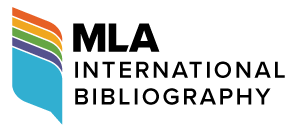Abstract
Cameroon inherited two languages, French and English, from France and United Kingdom administration (1916-1960) and adopted them, within the framework of reunification, as official languages, to achieve social cohesion, unity and national integration. The official bilingualism policy qualified as unequal and largely in favor of French, gave birth to a linguistic and cultural conflict. Indeed, the recognition and maintenance of Anglophone and Francophone communities, in the light of colonialism, as two communities with linguistic, historical, cultural and educational specificities generated over the years, a linguistic juxtaposition. This linguistic juxtaposition is fundamentally characterised by the predominance of official languages in each linguistic community, the dominance of French in the social network and therefore, stigmata and identity withdrawal especially for the Anglophone minority community which complain about the linguistic and cultural domination of French even in Anglophone regions. This research sets out to examine, in the light of Language Policy and Planning (LPP) theoretical approach, the impact of linguistic unification in the achievement of official bilingualism parity in Cameroon. An analysis of a corpus collected via survey and interviews with Francophone and Anglophone informants reveals the level of separation between Francophones and Anglophones, in what we are calling linguistic juxtaposition, in spite of actions taken by the government to promote official bilingualism and achieve unity and national integration. Therefore, the study recommends linguistic unification at institutional, educational levels, etc. to foster unity and national integration through official bilingualism and suggests a model for a systematic and nationwide use of official languages.
Recommended Citation
NGAMI KAMAGOUA, Jeff Sterline
(2023)
"Official Bilingualism or the Need for a Linguistic Unification in Cameroon,"
Journal of English and Applied Linguistics: Vol. 2:
Iss.
1, Article 6.
DOI: https://doi.org/10.59588/2961-3094.1049
Available at:
https://animorepository.dlsu.edu.ph/jeal/vol2/iss1/6



